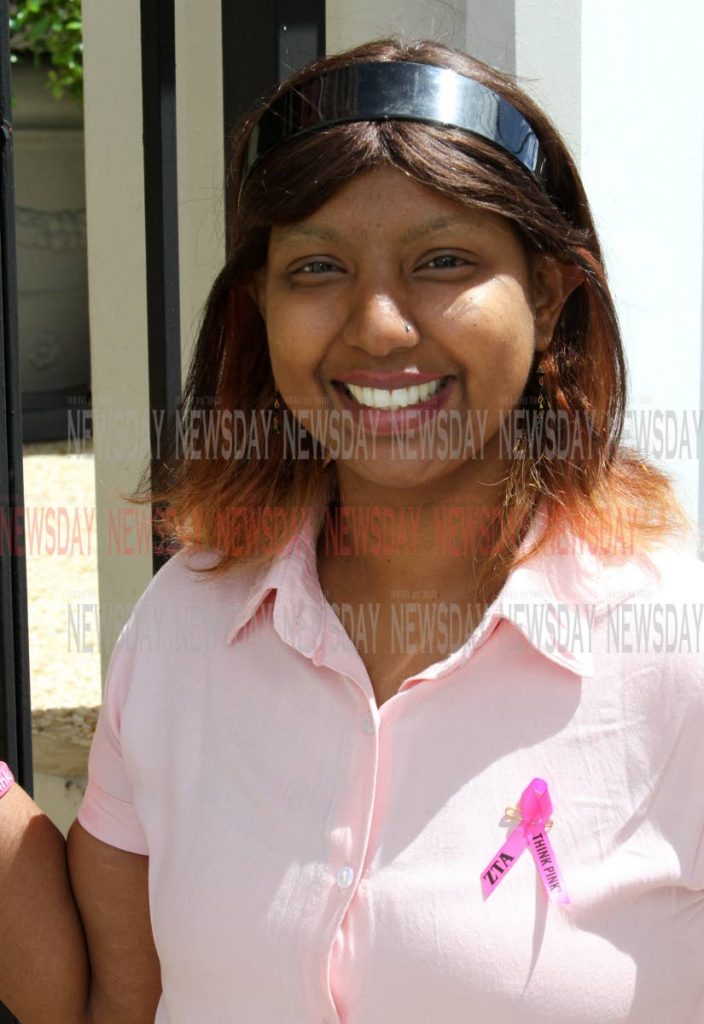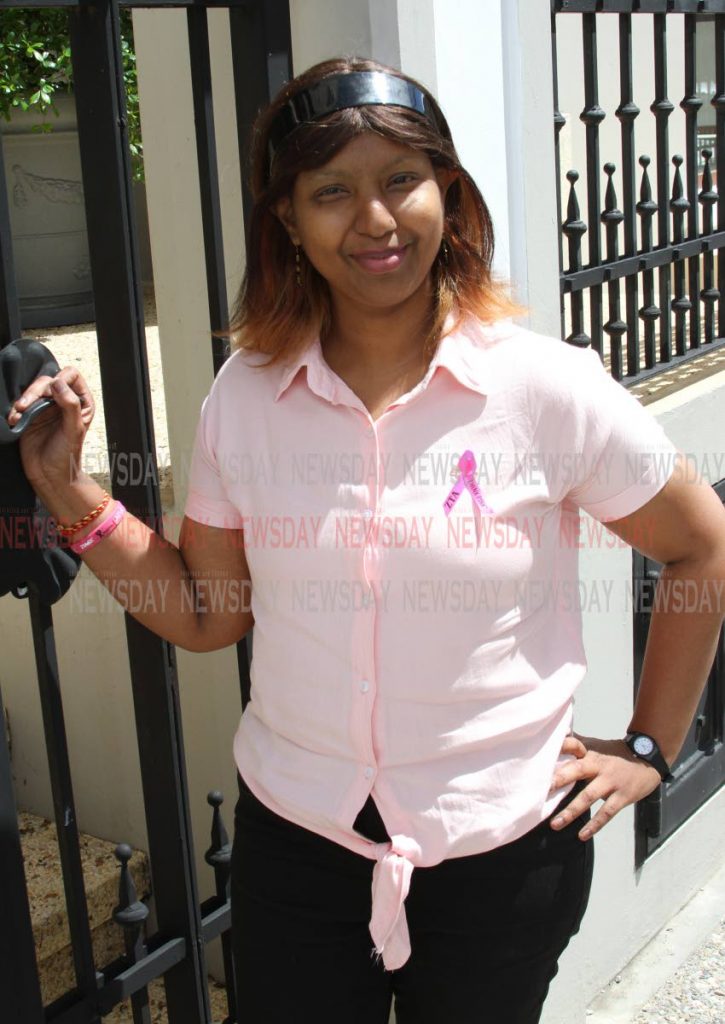Vikki's victory

“You have breast cancer.” Four simple words that would change the life of Chaguanas resident Vikki Ramdass in a way that nothing else ever did.
She said when her doctor told her, the room started spinning and she ran towards the bathroom, where she burst into tears thinking, “Who, me? At this age?”
The thought of what she feared most became a reality. For the then 33-year-old Ramdass, life was at its peak and everything was supposedly mapped out.
“You start to question your whole life,” Ramdass told Sunday Newsday.
She shared how the life-changing November 2018 scene in her doctor’s office started off as just a regular Monday morning, a month before. Ramdass, a Cancer Society volunteer, did her monthly breast self-examination as advised – only this time she discovered a lump.
“I felt a really hard lump on my right breast. It felt strange and I questioned why it was hard."
She calmed herself down, though she had an inkling that something was not right.
“I know I was high risk because it was hereditary, but I didn’t want to panic.”
Ramdass had lost her mother to ovarian cancer and a 28-year-old cousin to breast cancer.
A sales clerk at Roopnarine Hardware, she spoke to her coworkers about it and did Google searches.
She tried to ignore the lump, but that did not last long.
“I heard stories where women were too scared to do anything and ignored it until too much time passed and it was too late. Whatever the answer may be, I needed to get it checked out.”

A week later she took part in the 2018 Scotiabank breast cancer awareness walk, where friends persuaded her to use the mobile screening unit on site. She did and was referred for a breast ultrasound.
“The ultrasound was suggested as soon as possible. They did not want to alarm me, but I could tell something was up.”
Mammograms are advised for women 40 and older, and breast ultrasounds for women below that age to detect signs of breast cancer. Ramdass advises parents to have ultrasounds done on teenagers and tells young women to have regular ultrasounds, something she wishes she had known when she was younger.
“Do not be scared. I think it is important for women to seek advice, information and get help. It is okay, and you are not alone in this.”
After the ultrasound, Ramdass was sent for a biopsy and a mammogram. Speaking of all the tests, she said, “I was very confused, I did not know what was going on.”
On the day of her mammogram, she felt even more confused.
“I looked around (the clinic) and saw patients much older than me. I questioned why I was here, I felt like the odd one out.”
She thought, “I’m young, I should be out working and out with friends.”
On that day, scenes of despair played out in Dr Jameel Ali’s office at the St James Medical Centre. Ramdass later credited the doctor for his advice and guidance as she sought treatment options, though she had first questioned the diagnosis.
There was a silver lining. Thanks to her self-examination and quick action in getting tested, she was able to catch the disease in its first stage. Questioning her faith and her future, she started a fight for her life.
“It hit me all at once. I was told that I have to get both breasts removed, chemotherapy and radiation.”
Though she knew Dr Ali was simply trying to help, Ramdass still found the information overwhelming. For several weeks she reflected on all the options.
“It was real hard for me to explain to my family.”
She called her father first. She still has not told her brother in person, because of the way he dealt with their mother’s cancer battle. Ramdass said her brother was severely emotionally affected during their mother's cancer battle and she feared that he would not have been able to properly cope with the news of her diagnosis. She highlighted that men also face emotional battles in dealing with cancer and also need emotional support.
“I did not keep it a secret. The more information I could have gotten to help myself was for the better. Had I kept it in the dark, I would have become depressed and would not have gotten support.”
Though she was advised to have both breasts removed and undergo chemotherapy, she shuddered at the idea. On a trip to the US for further tests, she learnt she had the rare triple negative breast cancer, which required aggressive treatment.
She remembered thinking, “Wait – there are different types of breast cancer?”
She urges people to do the necessary research and ensure they have all the information when considering treatment options, as this can affect the outcome.
Eventually, Ramdass agreed to have her right breast removed and underwent chemotherapy earlier this year. She said there were times she questioned her body image when considering the effects of treatment, but in the end, the only thing that mattered was the fight to live.
Her treatment was not easy: “Every night I used to cry, and I did not understand a lot of things.”
When she finally accepted the situation, she realised her purpose was to help others going through similar hardships.
“There’s nothing to be ashamed of. I have begun to get over the stigma about breast cancer and be more open about it.”
Ramdass is now cancer-free and continues treatment to ensure she remains that way.
There is one message she has for other women facing breast cancer or anyone facing hardships. “Be grateful for everything that is thrown your way. There is hope. Look at all I have been through as a young person with this rare form of breast cancer – and still have the strength to move forward.”

Comments
"Vikki’s victory"